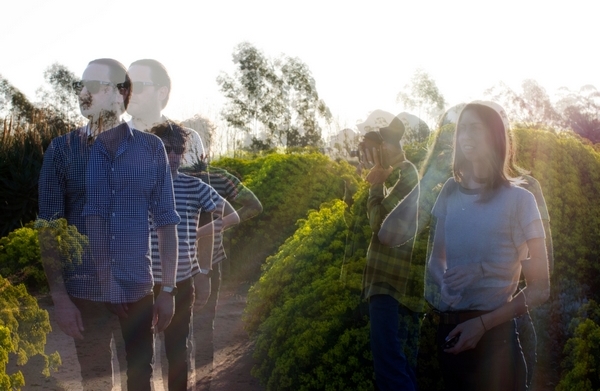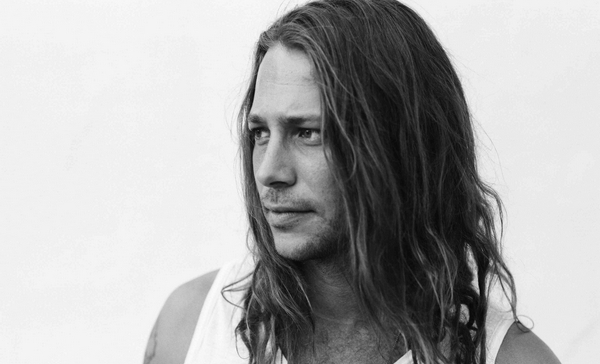“We had a lot of the songs from the album written and recorded in some form or another for a while, so I guess we’d already started work on new ideas while the album was coming out,” says one of the band’s two bass playing vocalists, Giles Simon. “So we felt more equipped to deal with some new stuff, but we don’t really run to any schedule in terms of releases and plans for how we’re going to put music out. It just happens as it happens.”
The two tracks aren’t quite brand new – Julia is a cover of French post-punk/cold wave band Asylum Party (whose original version came out in 1988) while Spring was left over from the Lowtide sessions. There can be a stigma attached to bands for releasing covers as singles, but Lowtide so fully inhabit the song that doesn’t really matter who wrote it.
“We weren’t worried about whether or not it was cover as much as making it our own version, given that we have a limited palette in terms of what we’re prepared to do musically,” Simon says. “We wanted to keep the music live, to use instruments that we play live and not to over-produce things in a recording sense.
“I was looking at the YouTube clip for Asylum Party’s Julia, and one of the comments was ‘Back then everyone and his dog had a Yamaha DX7,’ which is the keyboard you see front and centre of the video clip. Gabe [Lewis] prides himself on making as wild an amount of sound as he can out of his guitar and nothing else. That’s the kind of thing we’re interested in, more so than whether or not strategically it’s a good idea to be releasing a cover as a single.”
The original was released 27 years ago, and the world has since become a vastly different place. So from a thematic point of view, Lowtide’s version gives the song a new significance.
“I was thinking about it as maybe a nostalgia for the Gillard-era,” says Simon. “I like re-establishing a song that had nothing to do with the context in which we are, which we can then make contextual relationships to what our situation is.
“I’m interested in the idea of how songs can become traditional. Say the way that folk music became traditional, and it was more the recordings and interpretations and performances of songs than the authorial originality of the music.”
The other half of the disc, Spring, picks up precisely where Lowtide left off. It’s hard to find any critical feedback on the album that doesn’t use the descriptors ‘shoegaze’ and ‘dream pop’. But, while the sound of the band suggests the members have a deep interest in those genres, taste and creativity don’t always directly correspond.
“With Lowtide, we come together with mutual interests in these broadly defined genres of guitar pop music and that’s where we try to keep it focused. Everyone has their own interests: Lucy has a pretty deep soft spot for country music and I’ve been listening to a lot of electronic music, like Laurie Spiegel and Eliane Radigue. But I see a relationship still between the music that we make and my music interests generally, but it’s more that we have a certain approach to making music and we use basic musical tropes to approach our songwriting. We’re playing bass, guitar, drums and singing – it’s not a groundbreaking setup for a rock band.”
BY AUGUSTUS WELBY







